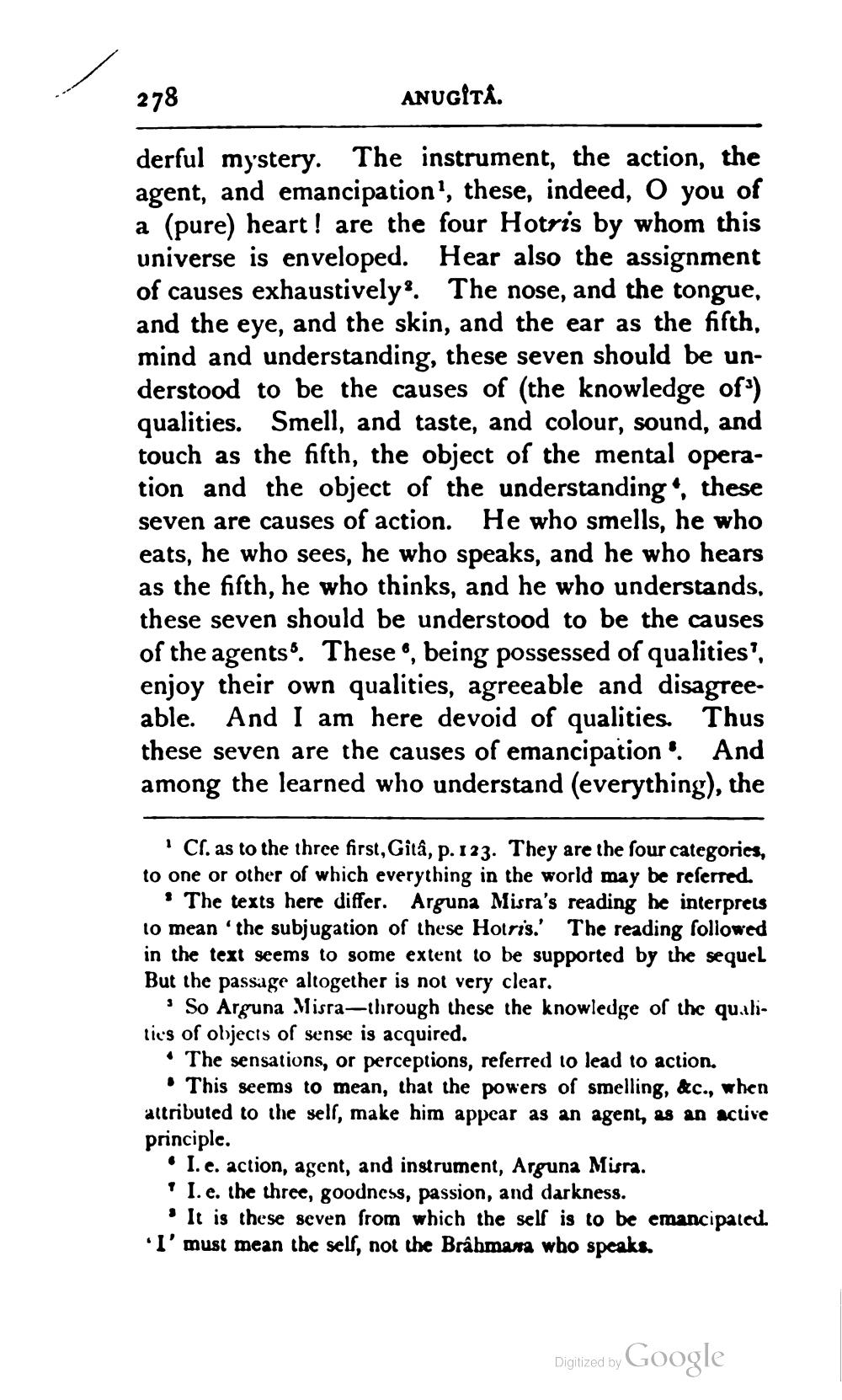________________
278
ANUGËTA.
derful mystery. The instrument, the action, the agent, and emancipation', these, indeed, O you of a (pure) heart! are the four Hotris by whom this universe is enveloped. Hear also the assignment of causes exhaustively. The nose, and the tongue, and the eye, and the skin, and the ear as the fifth, mind and understanding, these seven should be understood to be the causes of the knowledge of) qualities. Smell, and taste, and colour, sound, and touch as the fifth, the object of the mental operation and the object of the understanding, these seven are causes of action. He who smells, he who eats, he who sees, he who speaks, and he who hears as the fifth, he who thinks, and he who understands, these seven should be understood to be the causes of the agents. These “, being possessed of qualities?, enjoy their own qualities, agreeable and disagree. able. And I am here devoid of qualities. Thus these seven are the causes of emancipation'. And among the learned who understand (everything), the
'Cl. as to the three first, Gitâ, p. 123. They are the four categories, to one or other of which everything in the world may be referred.
• The texts here differ. Arguna Misra's reading be interprels 10 mean the subjugation of these Hotris.' The reading followed in the text seems to some extent to be supported by the sequel But the passage altogether is not very clear.
So Arguna Misra-through these the knowledge of the qualities of objects of sense is acquired.
• The sensations, or perceptions, referred to lead to action.
• This seems to mean, that the powers of smelling, &c., when attributed to the self, make him appear as an agent, as an active principle.
• I.e. action, agent, and instrument, Arguna Misra. "1.e. the three, goodness, passion, and darkness. • It is these seven from which the self is to be emancipateul. I'must mean the sell, not the Brahmara who speaks.
Digitized by Google




